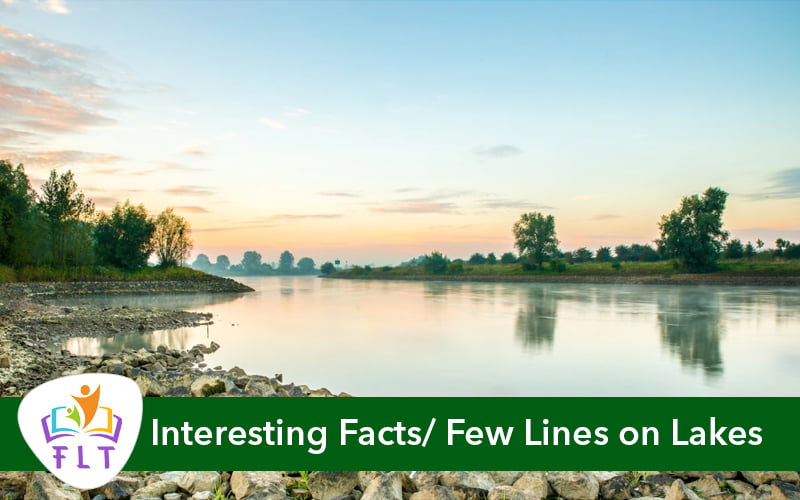- Lakes are sources of freshwater.
- A lake is surrounded by land, which protects its water from major disturbances.
- Unlike rivers, lakes do not have fast flowing water, crashing waterfalls or rushing rapids.
- The calm water offers an ideal home for plants and fish, which attract fish-eating birds as well as animals that come out to drink at the shoreline.
- Usually, rivers or streams flow into and out of lakes. This flow keeps the lake water fresh.
- Water flowing in from rivers and streams refills a lake.
- Water flowing out of a lake carries away salt, other minerals and chemicals.
- Evaporation is one way lakes can lose water.
- Lakes may be quite small or very big. Tiny lakes are usually called ponds.
- Lakes do not stay the same. The forces of nature can create new lakes and make existing lakes bigger or smaller.
- The Caspian Sea, between Europe and Asia is the largest lake on Earth.
- Water lilies and other plants that float on the surface of a lake provide shelter to many different animals.
- An amazing variety of fish, birds and other animals have adapted, or learned to survive, in the unique conditions that exist in a freshwater lake.
- The survival of animals, plants, and millions of people all around the world depends on having supplies of clean water.
- Herons, storks are long-legged wading birds wait patiently to catch the fish in the lakes when it comes to the surface.
- Flamingos can find their favorite foods like algae, shrimps and insect larvae.
- Pelicans wade in the water chasing fish, open their beaks and scoop fish into their throat pouches.
- Lakes are valuable to us. Some people do not take good care of lakes.
- If we do not protect lakes, their freshwater and all the living things that need it will be in danger.
- Some lakes dry up in the hottest months and others freeze over in winter.
- Over the years, people have become careless about keeping lake water fresh and available.
- Cities and factories sometimes dump waste into rivers, and the polluted water flows into lakes. When the lake becomes polluted, animals and plants start to die.
- Diverting rivers can leave the lake without water supply and cause the lake to dry up.
- Many plants and animals depend on lakes for their survival. We must take proper care of them.


5 Comment(s)
Comments are closed.